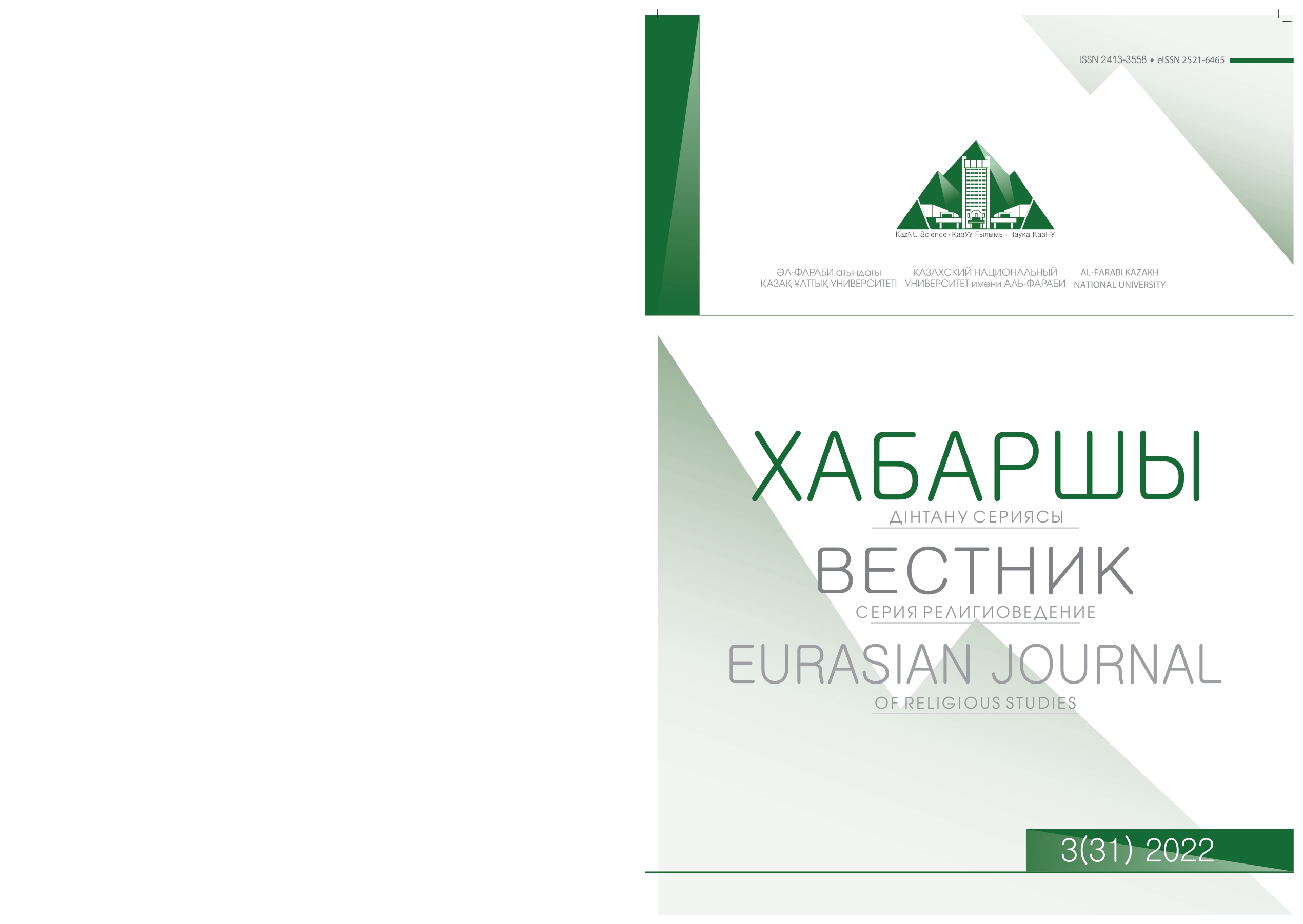Shamanism and Metaphysics
DOI:
https://doi.org/10.26577//EJRS.2022.v31.i3.r10Keywords:
Shamanism, Ecstasy, Inspiration, Consciousness, SoulAbstract
In this article, I explore the viability of a shamanist ontology. Through the lens of the German philosopher Ludwig Klages (1872-1956), I will address the possibility of outlining the philosophical merits of shamanism. Klages was one of the last European philosophers to represent a tradition which took seriously altered states of consciousness. Klages opposed a destructive ‘Spirit’ (= Reason, Will) to a nourishing ‘Soul’ (=Life). His thinking can be called ‘psycho-philosophy’, insofar as it reconciles psychology and cosmology. Klages’ intellectual legacy – also the legacy of German Romanticism – has been entirely neglected (not refuted) in mainstream 20th and 21st philosophical and scientific thinking. In this article, I try to show that Klages’ philosophy not only accounts for deeper states of consciousness but also cohering ‘original images’. Taking up this account might allow for bridging gaps between philosophical thinking and shamanistic consciousness. I will also briefly address the shamanistic consciousness’s alleged liability to ‘pathology’. Unfortunately, Klages’ work has hardly been translated. Therefore, I translated crucial passages myself.
Keywords: shamanism, ecstasy, inspiration, consciousness, soul
References
Bishop, Paul (2018). Ludwig Klages and the Philosophy of Life. A Vitalist Toolkit. London/New York: Routledge. Alksnis, Gunnar (2015, 1970). Chthonic Gnosis. Ludwig Klages and his Quest for the Pandaemonic All. München: Theion Publishing.
Eliade, Mircea (1972). Shamanism. Archaic Techniques of Ecstasy. Princeton: Princeton University Press (orig. French ed., 1951).
Empedokles. Fragments and Commentary (1898). Trans. Arthur Fairbanks. London: K. Paul, Trench, Trubner.
Fichte, I.H. (1876). Anthropologie. Leipzig: Brockhaus.
Halifax, Joan (1979). Shamanic Voices. A Survey of Visionary Narratives. New York: Dutton.
Houston, Jean (2011, 1974). ‘Myth, Consciousness, and Psychic Research,’ in: Mitchell, E.D. (ed.). Psychic Exploration. A Challenge for Science, Understanding the Nature and Power of Consciousness. New York G. P. Putnam’s Sons
Kelly, Edward F. et al. (2010, 2007). Irreducible Mind: Toward a Psychology for the 21st Century. New York etc.: Rowman & Littlefield Publ.
Klages, Ludwig (1981, 1929-1932). Der Geist als Widersacher der Seele (‘The Spirit as the Adversary of the Soul’). Bonn: Bouvier Verlag. Sigl. GWS.
Prel, Carl du (1888). Die monistische Seelenlehre (‘Monistic Doctrine of the Soul’). Leipzig: Günther.
Sahni, Sanjeev P., Tithi Bhatnagar, Pankaj Gupta, Eds. (2022). Spirituality and Management. From Models to Applications. Singapore: Springer.
Stein, Murray, Ed. (1984, 1982). Jungian Analysis. Boulder & London: Shambhala.
Steinbeck, Albrecht (1836). Der Dichter ein Seher, oder über die innige Verbindung der Poesie und der Sprache mit dem Hellsehen (‘The Poet as a Seer, or, the Intimate Connection between Poetry and Language, and Clairvoyance’). Leipzig: G.J. Göschen.
Tuéni, Nadia (1985). Les œuvres poétiques complètes. Beyrouth: Ed. an-Nahar.













